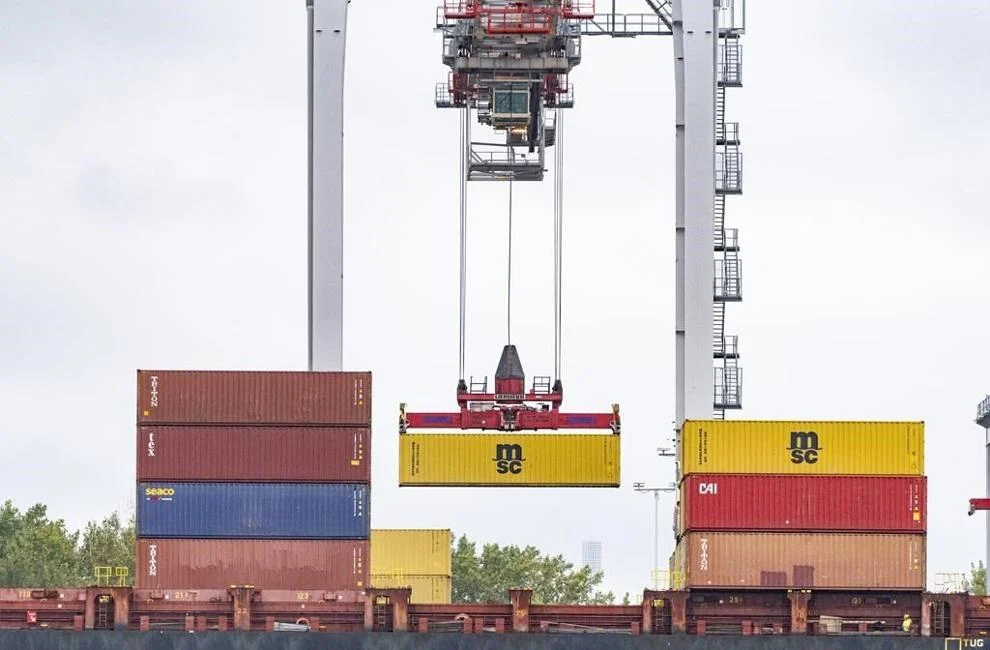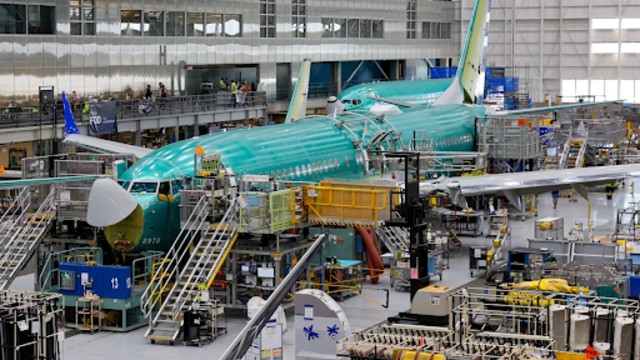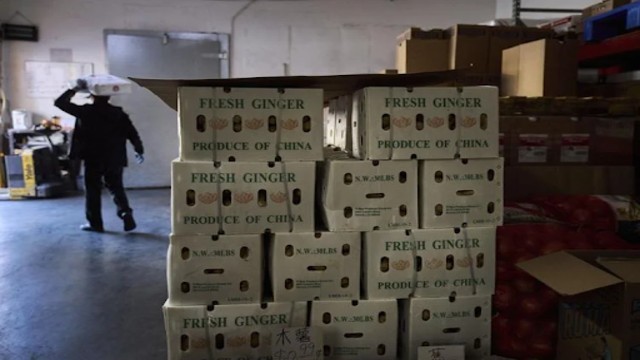
A shipping container is loaded onto a container ship in the Port of Montreal on Tuesday, Sept.19, 2023. THE CANADIAN PRESS/Christinne Muschi
From mid-December to the end of March, police in Montreal inspected approximately 400 shipping containers at the city's port and uncovered nearly 600 stolen vehicles, with the majority originating from the Toronto area.
The operation shed light on how Canada's second-largest port has become a critical transportation hub for the illicit exportation of stolen vehicles. According to police, the port's strategic location and large volume of container traffic make it an attractive choice for criminal networks seeking to smuggle stolen cars out of the country.
Bryan Gast, vice-president of investigative services at Équité Association, an anti-crime organization, highlighted the port's significance, noting its convenient proximity to the Greater Toronto Area, where many of the stolen vehicles originate. Criminals typically pack stolen vehicles into shipping containers in the Toronto area, falsify paperwork, including customs declarations, to disguise the cargo as legitimate, and then transport them to the Montreal port via rail or truck.
Gast's organization participated in Project Vector, a police-led operation that recovered 598 stolen vehicles at the port between December and March. In addition to its strategic location, criminals exploit the high volume of merchandise passing through the port to conceal stolen vehicles among legitimate trade goods. Last year, the Port of Montreal handled around 1.7 million containers, including 70% of Canada's legal vehicle exports, making it a prime target for organized crime.
The port authorities work closely with law enforcement agencies, but they are limited in their ability to inspect containers. Port spokeswoman Renée Larouche stated that containers can only be opened by port officials in cases of emergencies or to prevent environmental damage. While over 800 police officers have access cards to enter the port and open containers with a warrant, only border officers can open containers in customs-controlled areas without a warrant.
The majority of the vehicles recovered during Project Vector were from Ontario, particularly the Peel Region, which has become known as the province's car theft capital. Patrick Brown, the mayor of Brampton, a city within the Peel Region, highlighted the lack of container screening at the Montreal port as a major loophole that facilitates the export of stolen vehicles. He emphasized that car theft is a more serious problem in Canada compared to the United States due to the lower percentage of containers scanned at Canadian ports.
Brown urged immediate action, suggesting that federal funding should be used to purchase scanners for the Montreal port and Toronto-area shipping hubs. He also advocated for increased police authority to enter customs-controlled areas without a warrant to combat organized crime activities.
However, the Canada Border Services Agency (CBSA) faces challenges in inspecting all containers leaving the country. While all containers flagged by police are inspected by border agents, scanning every container is not feasible due to resource constraints and the need to maintain trade flow. As a result, stolen vehicles must be intercepted before reaching the port, as border agents lack the capacity to inspect every container once it arrives.
Despite efforts to combat stolen vehicle exports, the lack of resources and focus on export inspections make Montreal's port vulnerable to organized crime activities. While there is no evidence of direct infiltration by organized crime at the Port of Montreal, skepticism remains regarding the limitations on enforcement efforts by border agencies and port authorities.















